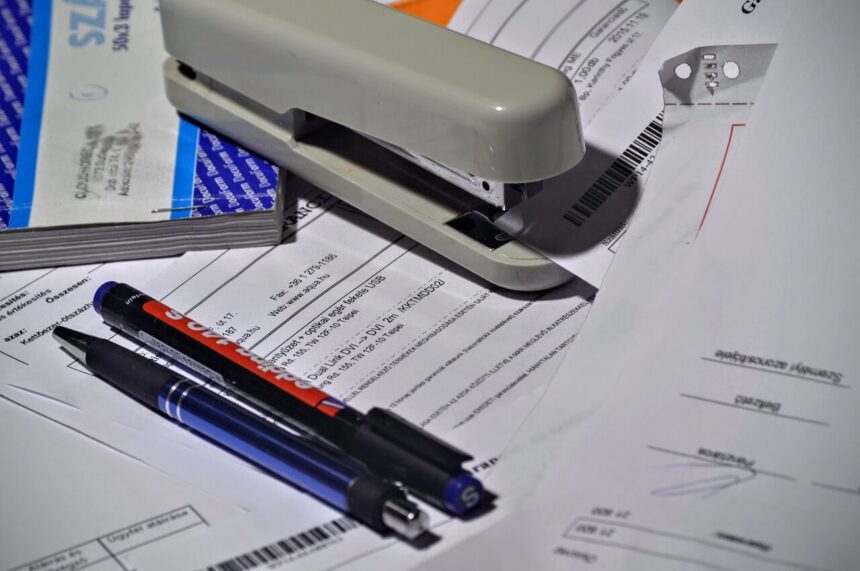If you’re a business owner in Kenya, cash flow can be a significant issue. You may have to wait weeks or even months for customers to pay their invoices. This can cause a severe cash crunch and make it challenging to grow your business. This is where invoice factoring comes into play.
Invoice factoring is funding that allows businesses to sell their outstanding invoices at a discount to receive immediate cash.
This can be helpful for companies that are waiting on payments from customers and need cash flow right away.
Businesses usually factor their invoices with a third-party company, called a factor. The company will pay you the value of the invoice minus a fee and then collect payment from your customer.
This can be a great way to ease cash flow issues and grow your business.
Related: Top 10 Benefits of Cash Flow Forecast in Business
How Does Invoice Factoring Work in Kenya?
The process of invoice factoring is quite simple. You have an outstanding invoice from a customer for KES 10,000.
You can factor this invoice by selling it to a third-party company for KES 9,500. The company will then pay you the KES 9,500 immediately.
Once the customer pays the invoice, the company will remit the balance to you, minus their fee.
This can be a great way to get immediate cash flow and ease any cash flow issues you may be having.
If you’re interested in invoice factoring, there are a few things you should keep in mind:
1. Invoice the clients
The first thing you do as a company. Once you seal a business deal with the client, you send an invoice for payment to them for goods or services provided.
The invoices should always be payable in 30-90 days.
2. Identify an Invoice Factoring Company
Always start by identifying the best Factoring company that will work best with your business.
Then go through the terms and conditions required to qualify for the service and apply.
The factor will then determine whether your business qualifies for invoice factoring and do a background check on your clients and see their financial history.
You and the Factor will sign a financing agreement based on that research.
3. Sell the invoice to the factor.
Once you have a financial agreement with the factor, you will now sell the invoices to the factor at a discount.
The factor will then review the invoice submitted to whether it is eligible and then issue 80% of the value of your invoice.
However, the advance will depend on the amount in your invoice.
See also Major advantages and disadvantages of business loans
4. Notice of assignment
Once you have assigned the financial agreement, the factor may ask you to send a note to your clients notifying them of the new deal.
This is where you notify the clients of the new partnership with the factor, which now creates an account where all payments will be directed in the future.
5. Payment to the Factor
Once the notice of assignment is sent to the clients, the client will now be required to pay for the goods and services within 30 or 90 days, as stated in the invoice.
6. The factor pays the remaining money.
Once the client has honored the payment agreement according to the terms and conditions of the invoice, the factor will now forward you the remaining 20% of the full payment.
Qualifications of Invoicing Factor
- Must have been in business for at least two years non-stop
- Must have invoices due within 90 days
- Your business must not have severe tax or legal problems
- You must be practicing business to business (B2B) or government (B2G)
How to choose a good Invoice Factoring company
Here are some of the factors to consider while choosing an invoice factoring company
Good customer relations
Considering that the factor will be dealing with your clients directly as they make payments, the factor you choose must have good customer service.
In some cases, the factor may need to communicate directly with your clients as they verify the invoices and the assignment for the invoices.
1. Timely funding
Another essential thing to consider is how timely the factor is funding your business. This may be due to some urgent money matters that your company may require.
For example, to pay employees, as a business, you do not want a scenario where your employees will receive their payment late after working so hard.
Once you qualify for invoice factoring, the funding should come as soon as possible, even two to three days later.
2. Recourse versus Non-recourse factoring
You must understand your factor very well in terms of recourses versus non-recourse.
Recourse factoring can become problematic if you have already spent the money you received from the factor.
You should only factor in invoices to customers who reliably pay on time.
Some firms advertise non-recourse factoring, but they list several reasons why an invoice can be exempt from no recourse. Other factors will offer partial recourse agreements.
Before you sign the Factor contract, please read it carefully and understand the terms in case of any misunderstandings.
3. Spot Factoring vs. Contract Factoring
Spot factoring allows you to sell and assign individual invoices to a factor; however, many factor companies do not advocate for this. They always want contract factoring, which is every month.
However, many businesses may have clients who pay at different times, and their financing needs may change, making the flexibility of spot factoring a better option.
Read also How to Convince Investors to Invest in Your Business
4..Be familiar with the industry.
Some Factor companies are not familiar with the industry most of their clients are in. Hence it is essential to choose a Factor company that understands the industry to avoid conflicts.
Advantages and Disadvantages of Invoice Factoring
Here are some of the advantages
- Quick money: In this case, you can receive cash as fast as possible to fulfill some business priorities rather than wait for the client to pay after 30 0r 90 days.
- Opportunity to get to work with the best financial experts: This means you get the best financial advice for your business from the expert
- The creditworthiness of your customers is considered: With invoice factoring, your customer’s creditworthiness is more important than yours. This means you can get financing even if you have poor credit.
Disadvantages
- The factor that may communicate with your customers: You can expect your invoice factoring company to contact your customers, and the level of interaction will vary by provider.
- With an invoicing factor, the services may be more expensive
- There is fear that they may sell your invoice to other clients
Top FAQs about invoice factoring in Kenya
What is the purpose of invoice factoring?
The purpose of invoice factoring is to provide businesses with immediate cash flow. This can be a great way to grow your business or ease any cash flow issues you may be having.
How much does it cost to factor invoices in Kenya?
The cost of invoice factoring will vary depending on the company you use. Typically, you will pay a fee of between 1-3% of the invoice value.
How do you make money from invoice factoring?
You make money from invoice factoring by selling your outstanding invoices to a third-party company.
The company will pay you the value of the invoice minus a fee. Once the customer pays the invoice, the company will remit the balance to you, minus their price.
This can be a great way to get immediate cash flow and ease any cash flow issues you may be having.
Final Thoughts
If you’re a business owner in Kenya, invoice factoring can be a great way to ease cash flow issues.
The process is simple and can provide you with immediate cash flow. Just be sure to shop around for the best rates and terms.







